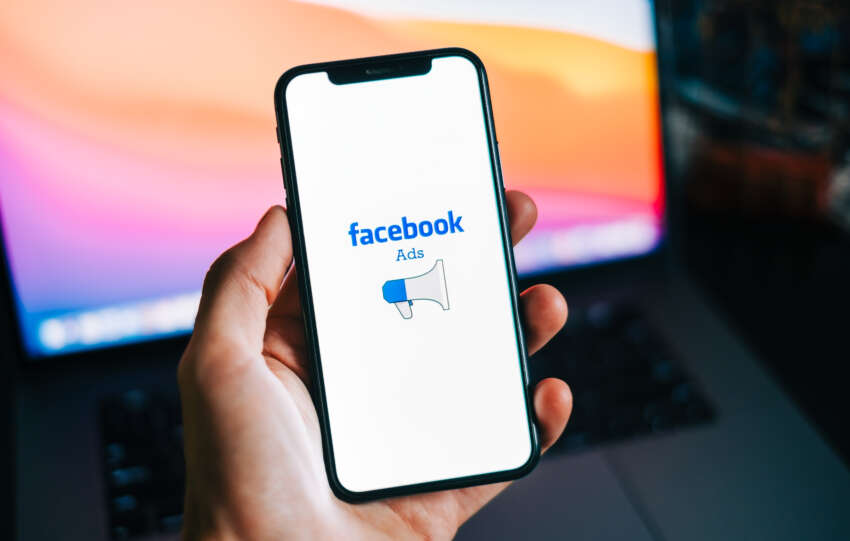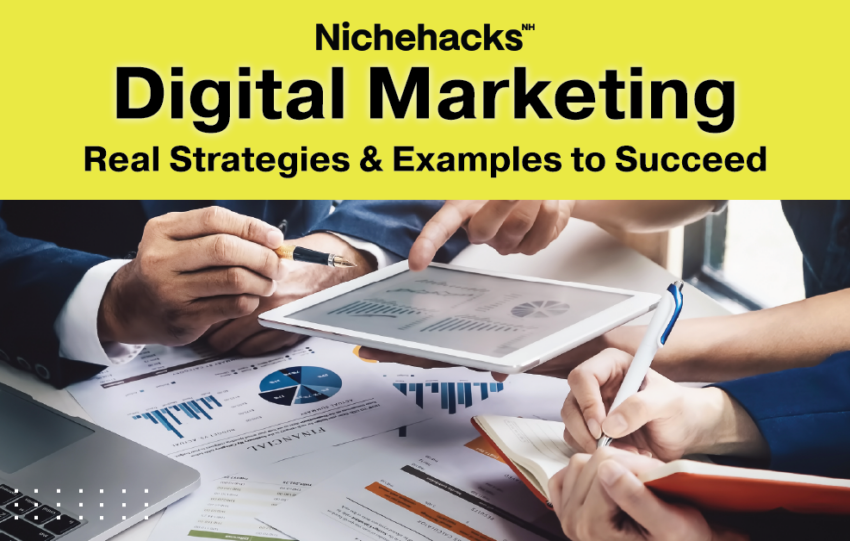Marketing Demystified: The Only 11 Principles You’ll Ever Need To Build A Profitable Online Business

Everyone seems to be a marketer these days.
Or so they claim on the internet anyway…
“I’m an internet marketer”
“I’m an affiliate marketer”
“I’m a digital marketer”
“I’m a product marketer”
“I’m a content marketer”
“I’m an inbound marketer”
It’s easy to use these titles because there’s no entry barrier.
Anyone can call themselves anything on the internet.
But how many so-called marketers actually understand what marketing really is?
Can you explain it to a layman without confusing him even more?
Let me tell you what most so-called marketers think marketing is…
They think it’s about throwing together a WordPress site, adding some content, and plastering affiliate links all over it.
They think it’s about promoting products and making commissions.
They think it’s about sharing content on social media.
They think it’s about creating product review sites, generating traffic, and making money.
They think it’s about sending mass emails to your list telling them to “buy this now”.
They think it’s about ranking on Google’s first page for your target keywords.
They think it’s about selling products.
They are WRONG!
These are mostly promotional techniques at best.
Marketing is about just one thing.
Finding the biggest problems/fears of your target audience and solving them in a profitable way.
That’s all there is to marketing
That’s all there is to online marketing, affiliate marketing, internet marketing, or any other type of marketing.
Far too many aspiring online marketers are obsessed with different promotional techniques, fads and gimmicks, and loopholes.
Instead of understanding the core internet marketing concepts, they look for the next shortcut, the next secret tip, the hidden niche no one else knows about, and the next million-dollar breakthrough.
Of course, none of these shortcuts, secrets, or hidden niches actually exist.
If you want to succeed at online marketing, you need to understand its fundamentals and keep reminding yourself about them.
This post is a reminder, a refresher, an invitation to the basics.
Basics that’ll help you get ahead of the other 90% of marketers who’re shooting in the dark without any understanding of what they’re actually doing.
Here are some of the core internet marketing concepts and beliefs you need to remember all the time…
What You’ll Learn In This Post
- The basic yet surprising mindset change that you need to be a successful marketer
- How marketing hasn’t changed in over 100 years.
- The one unexpected thing you need to make money online.
- Why you don’t need to be an expert to make money online.
- The secret success formula of six-figure affiliates (it’s nothing to do with expertise, list size or traffic).
1. Marketing Hasn’t Changed For 100’s Of Years
Marketing is as old as the human race itself.
And at its core, it hasn’t changed much.
It’s about identifying needs and fulfilling them in a profitable way.
It’s about getting the right message in front of the right people at the right time.
It’s about using human psychology and emotions to your advantage.
And that’s never going to change.
To be a successful marketer (any kind of marketer) you need to know your audience before anything else.
Because when you don’t know them, you can’t understand their pain, you can’t speak their language, you can’t get your message across.
Advertising mogul David Ogilvy, regarded as the father of advertising, said this years ago…

Source: Timeless Marketing Wisdom
Ogilvy’s point was simple: Instead of trying to write fancy words, impress people with your grammar, or use sales and business talk you should instead just write in the way every day people speak.
And furthermore you should start with the problems they have that lead them to consider making a purchase. If you can’t show them you understand their problems they won’t part with their hard earned cash.
It doesn’t matter what form of marketing you’re pursuing, it should always begin with a clear understanding of your target audience.
This is why when I see people asking
“Should I start an Amazon review site?”
“Should I sell an eBook to my subscribers”
“Should I promote XYZ product to my list”
“How long should my content be?”
“How many keywords should I put into my post?”
I immediately know they’re lost.
Because they’re asking the wrong questions.
Here’s what you should be asking
“What’s the biggest problem of my audience?”
“What are my audiences fears, dreams, hopes and worries?”
“Are there any products on Amazon that can solve the problems of my audience?”
“Are product reviews useful for my audience to help them overcome their problem?”
See the difference?
That’s marketing at its core.
Thinking about the needs of your audience and find ways to make a profit by solving them.
2. Stop “Selling Products” If You Want To Make Money Online
Ever wonder why no one links to your content? Why no one buys your product? Why no one clicks on your affiliate links? Why no one shares your content?
Because no one cares about you.
People don’t give a sh*t if you’ve spent 12 hours writing a piece of content, or months creating a product.
No one cares that you want to “make money on the internet” or “work from home” or “retire early” or “spend more time with your family” or even shockingly if you have a real pressing need for the money because of an illness.
Why? Simply because people are selfish and all they care about is themselves (it’s human nature and we all do it including you).
They only notice when there’s something in it for them.
This is why the homepages or the landing pages of all top brands always focus on highlighting the benefits of their offer.
They focus on answering just one question “What’s in it for me?”
Here’s a pretty good example.

Source: Shopify Plus
Look at this headline.
It answers “What’s in it for me?”
Without talking about any features, it simply shows the benefit it offers.
All smart marketers do this.
Instead of “selling features”, they align their marketing strategy with the needs of their audience.
They create content that is beneficial to their readers. They create products that their audience needs to solve a problem they have in their lives.
To make money online, to get links, to get shares, to get mentions you need to offer MASSIVE value to your audience.
You have to solve the problems of your audience better than your competitors.
This quote from Robert Kiyosaki sums it up…

Source: http://www.richdad.com/
Are you wondering how this looks in real life? Here are some practical examples…
Need email subscribers? Create an irresistible email lead magnet that instantly solves a REAL problem your audience has.
Need more social shares, comments, and blog readership? Continuously publish highly actionable content that speaks directly to your readers (their hopes, fears, dreams, and passions) and solves their problems.
Need more product sales? Create a value-rich sales funnel that prepares your prospects from day 1 for the eventual sale by giving value and educating them on why your product (or the affiliate product you recommend) solves their problem better than any of your competitors.
Need more affiliate sales from your review site? Find out the questions of your audience and create a massively useful review site that makes the buying decision super easy for your readers by SHOWING them directly how the product makes their life easier / happier / less stressful / more productive / whatever over regurgitating pro’s and con’s and features listed on Amazon.
Value is the common word here.
Nobody owes you anything.
You’re not guaranteed success just because you’ve created an affiliate review site or a blog or an email course.
Ask yourself if it’s actually giving value to your audience.
For example…
Is it solving real problems that real people have or just designed to make a quick buck from tricking them into clicking an affiliate link?
Is it benefiting the world or just cluttering up the internet?
Does it tell them something new (or at least show them something in a new light) that they can’t find on 1,000 other websites on the internet?
Is it designed with benefiting the reader and putting them first or does it only exist to line your pocket?
This is the only way to make money online.
The more value you provide the more money you’ll make.
3. Successful Affiliates Sell Solutions Not Products
Do you know the most profitable skill of six-figure affiliate marketers?
It’s their ability to identify the problems of their audience and find products that can solve those problems effectively.
Online marketing is all about problem-solving.
Don’t take my word for it Richard Branson says it too…

Source: http://www.azquotes.com/quote/950505
Seriously, successful affiliates aren’t successful because they have a lot of traffic or because they have huge lists, or because they have huge marketing budgets.
Most of them started from scratch and earned all those luxuries because they mastered the skill of finding useful products that their target audience needs.
Take WebsiteSetup as an example.

Source: https://websitesetup.org/
I’ve mentioned this site before on NicheHacks and I might do it again in the future.
Why?
Because it’s a great example of how you can earn millions of dollars in affiliate commissions by solving the problems of your audience.
There are a lot of sites out there teaching newbies how to start a blog.
But the quality of the content on this particular site is MUCH better than most others I’ve seen.
And all of it is absolutely free.
As a result, hundreds of thousands of people flock to this site every month and the owner makes thousands of dollars in commissions.
MoneySavingExpert, one of the biggest personal finance sites on the web, is another example. It’s a million-dollar blog now but it was started by one man who was determined to offer massive value to his readers. The results are there for everyone to see.
To become a successful affiliate, you need to understand the problems of your audience and offer them solutions that are genuinely useful. If you keep doing that consistently, no one can stop you from making money online.
4. You Don’t Have to Be an “Expert” To Make Money
Falling for the “I’m not an expert” myth is the number 1 reason why most people never make money on the internet.
You know what, you’ll never be an expert. But you’re already an expert.
Confused?
Being an expert is a relative thing.
You’re an expert for people who don’t know as much as you do about a subject.
But you’re NOT an expert for people who know more than you.
People keep bothering about those who know more than them and completely forget that the vast majority of the people on the internet don’t know as much as them.
For them, you’re an expert.
Just look at the stats.
More than 45% of the world’s population still doesn’t even have an internet connection as you can see in the screenshot below…

Source: We Are Social
Then there are those who have the internet but don’t use it regularly.
You’re a savvy user.
You’re already ahead of all of these people.
For example; setting up a new WordPress blog might be a piece of cake for you but for them, it’s a completely new thing.
For them, you’re an expert on this topic.
You can apply this to ANY niche you want.
Think about your work skills, your education, your hobbies, the activities and sports you enjoy, the challenges you’ve faced in life and the problems you’ve overcome, your passions, the topics you constantly read up on, and the things that friends and family always ask you for advice on.
You’ll always be an expert for a particular group of people on a certain subject. Why not pick one of these topics and make it your niche?
So target them and crown yourself as an expert.
Because no one else will do it for you.
5. The Money is NOT in the List
I’m a big fan of email marketing and consider an email list any marketer’s number one online asset.
Recent surveys show that it’s among the top traffic acquisition channels for affiliate marketers, 41.47% to be precise as the graphic below shows.

Source: Affiliate Summit
But is it enough to have a list? A random database of email addresses that you can contact any time you want?
No.
The money is actually in the relationship that you have with your subscribers.
An engaged email list of 1000 people who regularly respond to your emails, consider you an expert, and reach out to you for help is MUCH more useful than a list 10,000 email subscribers who rarely open your emails.
This is why it is SO important that you build your email list the RIGHT WAY.
Not sure what that means?
The right way to create an email list is to actually build a database of people with a common set of problems. All of them have similar needs, similar problems, similar concerns.
How do you do that?
By creating a laser-focused email lead magnet for list building.
When you build an email list around a problem, you know exactly how you can monetize it (Hint: by solving that problem)
But when you simply buy an email database or don’t have a strategy before building an email list, it’s mostly useless for your business.
Because spamming is not a business strategy.
And gone are the days when you could spam people with irrelevant offers and stay in business for years.
So always remember that it’s not the number of email subscribers that matters. What matters is the common problem (or set of problems) that binds your subscribers together. If they have a common need, you can make money by fulfilling it.
If not, you’re just wasting your time.
6. Branding is a Business Necessity Not an Option
Will you buy from a company that you don’t trust?
Of course not.
Then why the hell do you expect people to buy from you when you don’t give them any good reason to trust you?
Not sure what I’m talking about?
Let me elaborate.
Why would anyone trust a site with a URL like this buybestrunningshoesforwomen.com?
Why would anyone trust a site that doesn’t even have a decent logo?
Why would anyone trust a site that’s poorly designed, takes ages to open and has no contact information?
Here’s a pretty good example (of a bad site)

Addressing all the issues I’ve highlighted above (and more) is called branding.
Branding is about giving a unique identity to your site and making it memorable for your users.
It covers everything from your site’s name, logo, and design to user experience, content quality, and performance.
A strong brand is visually appealing, has a consistent message, has well-defined values, and is associated with other trusted brands.
Branding is not an option anymore, even for affiliate marketers.
It’s a business necessity.
You can’t set up a review site or a comparison site with zero brandings and hope to establish a long-term business with it.
Why? Because the average web user is too smart and too skeptical these days.
The Wild West days of the internet where marketers could simply spam their own affiliate website with links and rank #1 on Google is over.
No longer do search users believe because a site is ranking #1 it must be a trustworthy website.
Even if they don’t know what affiliate marketing or exactly what an “affiliate site” is they still know when a site is biased, has false product reviews, or is designed simply to make money from them.
And the majority will never trust you unless you look, feel and act (and genuinely are) a trusted brand.
Even the almighty Google considers it mandatory for all online businesses, look at this screenshot

Source: SEOBook
The effectiveness of your online marketing strategy is directly linked to the strength of your brand.
A strong brand makes you credible and trustworthy which means you’ll need to spend less money and effort to convince people to buy from you.
Get these basics in place at least:
- A legit-sounding brandable domain over a spammy keyword-based domain.
- A premium theme, design, and logo.
- High quality, problem solving, content.
- Contact details, privacy policies, terms and conditions, and about me pages.
- Social media profiles are attached.
- A real person behind the site over just the company name with writers’ names on their content bios.
- A community where your audience can join and interact so they feel part of the brand.
- A mix of information-based content over just “give me your money” content that constantly reviews products, is monetized, or is plastered with ads.
- And most importantly; a genuine desire to benefit your audience and put their needs first over your own selfish needs (without this focus you’ll never get what you want in life anyway).
7. Seriously, Traffic Generation is Not a Problem So Why Do You Keep Saying That It Is?
Traffic generation is the number problem of most online marketers.
Or at least that’s what they think.
But what if I tell you that traffic has never been and will never be a problem.
I’m not crazy.
I’m just telling you a fact.
There are streams of highly engaged, active, and relevant traffic running all around you.
Facebook, Google, Reddit, Twitter, Pinterest, Instagram, forums, blogs, email lists, etc. are all traffic hubs.
You can use them whenever you want.
The bigger question is how to use that traffic.
Look, traffic generation is about three things:
- Knowing who your audience is
- Where they hang out
- And what you need to do to bring them to your site
For example, you run a blog about the problems of new moms and share tips to help them manage their responsibilities better.
Who do you think is your target audience?
New moms of course.
Where do they hang out?
I haven’t researched but my gut feeling is that Pinterest, Facebook, and Google should be your three main traffic sources. Think about all the blogs, websites, social hubs and groups related to parenting, kids, babies, moms and similar topics that exist on the web.
Your traffic sources depend mainly on your audience.
If a certain traffic source is working for one website, it’s not guaranteed that it’ll work for others as well.
In fact, you’ll be surprised to know that there are established blogs out there that get most of their traffic from Pinterest and Instagram. Not Google, not Facebook, not advertising.
MinimalistBaker, with more than 500K Pinterest followers, is a great example.

How do you bring them to your site?
It depends on the interests of your audience, your resources, and your strategy.
There are hundreds of ways to bring traffic to your site.
You can identify the core problems of your audience and answer them with high-quality content
Or you could simply buy traffic using Facebook Ads, Google Ads, or other advertising networks.
Or you could hire guest bloggers to spread the word about your site.
Or hire paid link-building services to drive more traffic to your site.
NicheHacks has covered almost every single traffic source possible here.
In short, it all depends on your resources and your strategy.
There’s no such thing as free traffic.
You either have to pay with your time or your money.
The bigger question, again, is how you turn that traffic into a business asset.
Do you have a real business operating behind your website and content to turn traffic into leads and leads into customers?
If not, you’re wasting time. You don’t make money just because you installed WordPress, typed out some words, and sprinkled in affiliate links with no thought about your target audience, their problems, or how you’ll help them solve their problems.
8. SEO is About Two Simple Things (And Most So-Called “SEO Experts” Are Making It Complicated)
If you’ve been into online marketing for even a few months, you must’ve seen hundreds of articles, blog posts, and eBooks about SEO.
And yet despite all you’ve read you’re probably as confused as ever.
And that’s simply because the so-called “SEO Experts” like to overcomplicate things and make SEO sound so complex that you’ll be scared to do it yourself for fear of upsetting Google and getting a penalty.
Which of course makes you purchase their books, courses, and services instead. So it’s in their interest to spread fear and confusion.
It doesn’t have to be so complex, however.
SEO is simply about the following:
High-Quality Problem-Solving Content + Outreach (or networking / getting your content in front of the authorities in your niche of you prefer) = Backlinks (and therefore higher rankings)
Let me break that down into 3 simple steps:
- Create high-quality content that (partially) solves your target audiences’ problems.
- Spend time getting to know the authorities in your niche and getting your content in front of them and their audiences (on social media, via email, via commenting on their blog, by being part of their social hubs and communities).
- Assuming your content gives value and solves problems their audience has watch as you pick up backlinks from websites in your niche.
Research shows that the more high-quality backlinks (i.e. from trusted sites, brands, and authorities) you have the higher you’ll rank.
Please note: Low-quality links in high volumes will either have no effect or be harmful to your site so don’t be tempted to spam your own site, use shady automated link building tools, buy links online, build “PBNs” (so-called Private Blog Networks) or engage in other “blackhat” activities.

Source: Backlinko
And how do you get high-quality backlinks?
By creating link-worthy content that is so valuable that people willingly link to it when they see it (through search, referral traffic, or through outreach)
For example, why do you think I linked back to the graph above? Did Backlinko pay me to do it?
No.
I linked to it because it helps me back my point with research and also makes me look more credible.
In short, it’s useful to me. I need it.
That’s what link-worthy content is.
Infographics, data-rich content, survey results, unique research, and case studies are just a few examples of link-worthy content.
So the formula is simple as far as SEO is concerned.
- Find the most burning problems of your audience.
- Create massively useful content that answers their questions
- Reach out to the right people and tell them about your content to get links
Easier said than done, I know.
But that’s the formula.
It’s up to you to find ways of executing it and they are endless…
You can network with authorities via email or social media (just avoid generic mass sent templates as everyone ignores those).
You can comment on top bloggers’ posts or reply to their email list broadcasts.
You can buy vendors’ products and become part of their customer-only communities to get on their radar.
You can send people you’d like a link from a free short report, an infographic, a case study from following their advice, or something useful for their audience.
You can hang out where your target audience hangs out and always be giving value, solving problems, answering questions, and showing your authority, and then occasionally share your own traffic.
You can use paid ad’s on endless platforms from Google Adwords to Facebook to Linked Into Outbrain and beyond to get your ads on other websites in your niche so the website owners see it.
Whichever of these (and countless) other methods you use you’ll get the attention of the big players and influencers in your niche who will eventually see your content and (assuming it’s high quality and beneficial to their audience) they’ll link to it.
9. High-Quality Content Builds Trust Which Leads to Sales
Content is king.
Do you know why everyone keeps saying this?
Because of high quality, useful, actionable content will always remain the number 1 way to build trust with your audience and turn them into leads, customers, and brand advocates.
Content is your first impression of your audience.
A strong first impression helps you build a long-term relationship with your readers which eventually helps you turn them into customers.
Research shows that 60% of consumers feel positive about a brand after reading its blog and 61% of US consumers have made purchases because of a blog post.

Source: Quicksprout
The key to succeeding with content marketing, however, is (once again) knowing the needs of your audience.
Content marketing works on the simple psychological principle of reciprocity which means that when someone does a favor to us, we feel compelled to return it.
When you give away high-quality content, full of actionable knowledge, for free your readers feel compelled to buy from you when you have a paid offer in future.
It also works because they already trust you because of your content and perceive your paid products as high quality because of the quality of your free content.
This is why marketers invest so much money in content marketing.
And it pays off big time.
10. Keep Learning to Keep Earning
Change is the only constant in this world.
This is why you, me, and anyone else who wants to keep growing personally and professionally needs to keep upgrading his skills all the time.
You can never relax as an online marketer.
Just because you have one skill doesn’t mean it’ll help you stay in business forever.
You need to continually upgrade your skillset.
That’s what smart marketers do.
They invest a certain portion of their earnings into learning new things about their industries.
That’s what allows them to stay on top.
And it’s not just about learning.
You need to actually put your learning into practice and take action to turn it into your lifelong skills.
For example, you might know a lot about SEO theoretically but how many pages have you actually ranked for the top keywords?
So it’s all about learning new skills, putting them into action and then learning more new skills.
It’s a never-ending cycle.
And if you’re smart you’ll put most of your effort into learning fundamental and time-tested principles and strategies of business and marketing over gimmicks, fads, and short-term loopholes that most of the guru’s constantly talk about.
The internet may change fast with a constant stream of new websites, platforms, apps, fads, and buzzwords though the reality is the fundamentals of business (problem-solving and exchanging value for money) and marketing (human behavior and psychology) haven’t changed for 100’s of years (if ever) and never will.
So choose wisely what you choose to learn and if it seems like a gimmick or a fad then avoid it.
11. Don’t Run After Secrets and Done-For-You Products
Online marketing is marketing on the internet.
There’s no difference in the fundamentals of conventional and online marketing.
It’s all about finding the needs of your audience and fulfilling them with the right products in a profitable manner.
To become a successful marketer, you need to get over your obsession with finding the next “loophole in the system” or the next secret strategy that’ll make you a millionaire overnight.
No “done for you” product or “secret strategy” will help you unless you invest in yourself and learn the basics of marketing.
Would you buy a “done for your business” in the ‘real world’?
If a family member told you that you could shortcut years of experience, learning, and skill and become a business success story overnight, would you believe them?
If a guy at work told you that you could replace your income in just 30 days without work following a secret system he knew for just $1,000 would you buy into it?
I hope you’d be skeptical and run a mile.
Like most newbies, you’re simply suffering from shiny object syndrome. You’re running from one trend to another and wasting money on one product after the other.
Stop fooling yourself.
There’s no magic formula that’ll make people hand over their hard-earned money to you.
You need to provide them value (MASSIVE VALUE) to make money.
It has to be a win-win situation.
Invest in education, skills, and experience from mentors who have already achieved what you hope to achieve over “buying products” or “systems” or “methods”.
Are You Ready To Change Your Mindset?
This post was a bit of a rant.
But it was needed because unless you understand the core concepts of marketing (and online marketing) you’ll keep running in circles wasting precious time and money.
Look, online marketing isn’t rocket science.
But it isn’t a piece of cake either.
The core idea behind any kind of marketing is simple to identify the needs of the market and offer products that fulfill those needs.
The same applies to internet marketing as well.
There’s no magic formula for success here.
It’s simply about connecting the dots, meeting the needs of your audience, and making money in the process.
If you’re willing to do it, no one can stop you from becoming the next online marketing success story.





